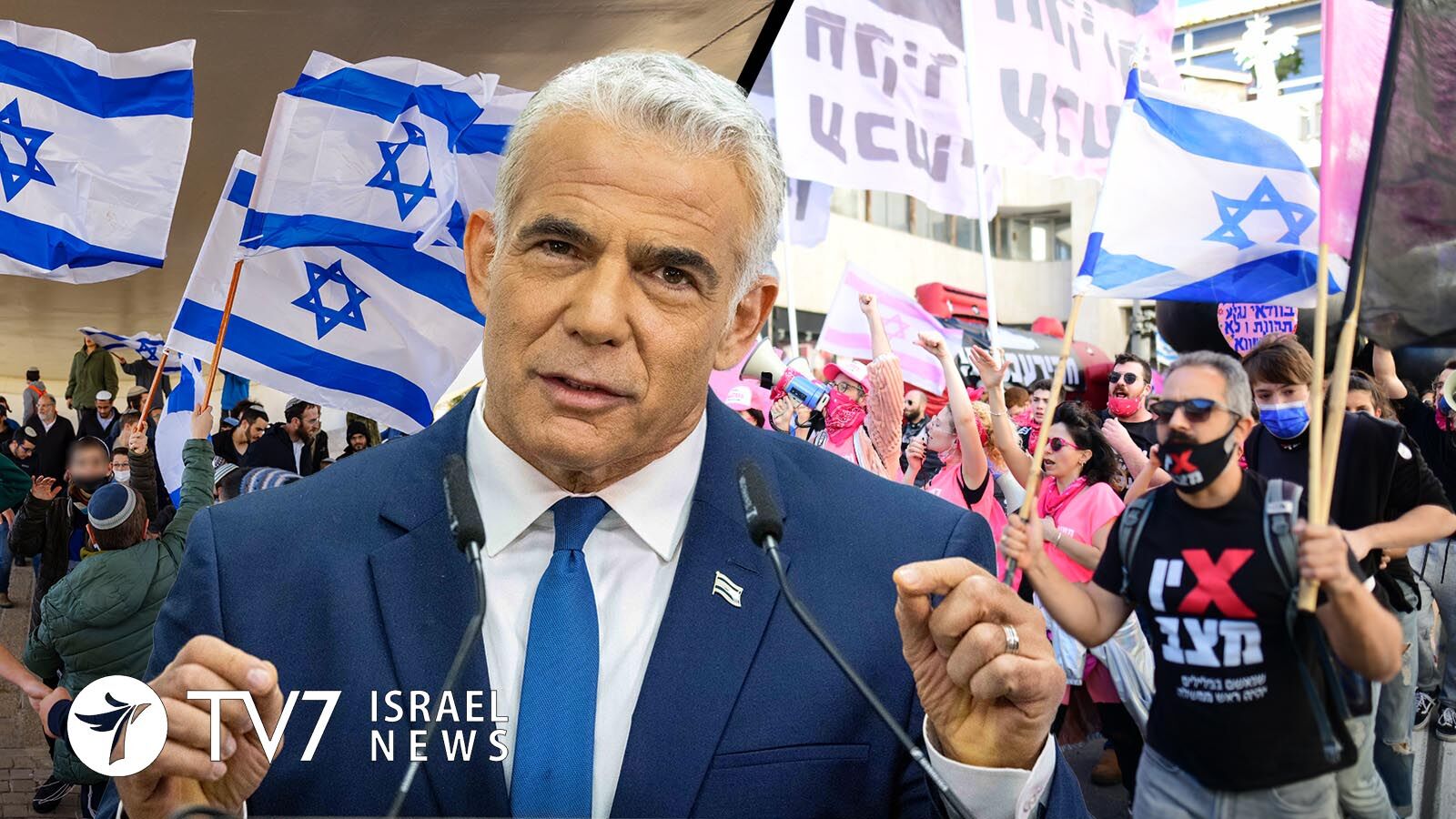“The greatest threat we face is the loss of unity within Israeli society. Without internal resilience we cannot contend with Iran, Hezbollah and the growing effort to depict us as an apartheid state,” said Yair Lapid.
By Jonathan Hessen and Erin Viner
In an address to the Annual Conference of the Institute of National Security Studies (INSS) in Tel Aviv, Jerusalem top diplomat stressed that representation of all Israeli citizens is a key objective of the current government.
“This government’s goal, which makes it different from its predecessors, is not to advance one side of the political map, but rather to connect and unite Israeli society and strengthen the State of Israel. Radicals weaken us – moderates strengthen us. The anti-democratic forces weaken us – democracy and the judiciary strengthen us,” he maintained.
Minister Lapid, who was the architect of the current Cabinet, contended that the trend of categorizing political belief into right and left camps is not applicable to Israel. “This divide is anachronistic, artificial and does not portray reality. In all major issues that concern the state, all major dilemmas of the government, the real divide is not between right and left but between a Zionist, Democratic and Liberal center versus the dangerous and violent edges (of society).”
Adamantly rejecting assertions that the ruling coalition was formed on the sole premise of ousting former Prime Minister Benjamin Netanyahu, Lapid said: “Politics was created for us to share resources fairly and settle contrasting interests in a reasonable manner. Contrary to popular belief, this government was not established over hatred of Netanyahu – it was established because we hate the system which he developed, governance by means of incitement and splitting Israeli society. Israel on was a path of self-destruction. The moment when the political sphere inflames conflicts rather than solves them the state enters a spiral from which there is no exit.”
The Foreign Minister went on to say that the majority of the population shares similar views on all major matters of concern.
When it comes to the Palestinian conflict, the leader of the centrist Yesh Atid political party asserted that the preponderance of the public agrees that Israel “needs to separate” from the Palestinians, although they will not accept the so-called “Right of Return’ nor a re-division of Jerusalem.
“What troubles them,” explained Lapid, who also serves as Israel’s Alternate Premier, “are not Messianic hallucinations, rather proper security arrangements. While the majority is willing to consider a Two-State solution to the conflict, “they are justifiably asking what a second (Palestinian) country would look like: and are not willing to accept the emergence of another failed Arab terror state on our doorstep.”
In contrast to Lapid’s exclusively focus on domestic issues, Defense Minister Benny Gantz used his own address to the INSS to highlight external threats and Israel’s need for cooperation with regional and global partners. The speech was pre-recorded, and broadcast as Gantz conducted an official visit to Bahrain.
“Facing Iran, our first and largest strategic challenge includes our advancement of power-building and strengthening our cooperation with our friends and allies, chiefly with the United States. Under the shadow of negotiations in Vienna, I am convinced that the United States will continue to act to thwart Iran’s nuclear program from a perspective of global security and regional stability,” stated Jerusalem’s top security official, stressing, ”Our militaries and defense establishments maintain consistent coordination and are also advancing operational cooperation in the face of the possibility of Iran’s nuclear breakout – during these very days.”
He also underscored Israel’s ongoing mission “to strike against Iranian attempts to entrench itself in our region by operating in Syria and Lebanon, as well as other countries such as Yemen and Iraq – which turned into sectors that directly threaten Israel and US allies in the region.”
Minister Gantz went on to reveal that Israel has made repeated overtures to assist the economically-devastated neighboring nation of Lebanon, as it confronts its own rising security challenges.
“It is important to clarify: the citizens of Lebanon are not our enemies, therefore I offered this year alone assistance to Lebanon on 4 occasions, including this past week in an offer relayed to the commander of UNIFIL” (the United Nations Interim Force in Lebanon peacekeepers), he said, specifying that Israel “seek sto help the Lebanese Armed Forces that are suffering of elemental logistical necessities following the desertion of 5,000 soldiers amid Hezbollah’s recent surge in strength due to direct support from Iran.”
He then reiterated that Israel “will not permit Iran’s Hezbollah proxy in Lebanon to bolster itself amid ongoing chaos in the country,” and that the Beirut government bears ultimate “responsibility for any harm or new threat against the citizens of Israel.”
